Routes to excellence Academic Teaching Excellence English as
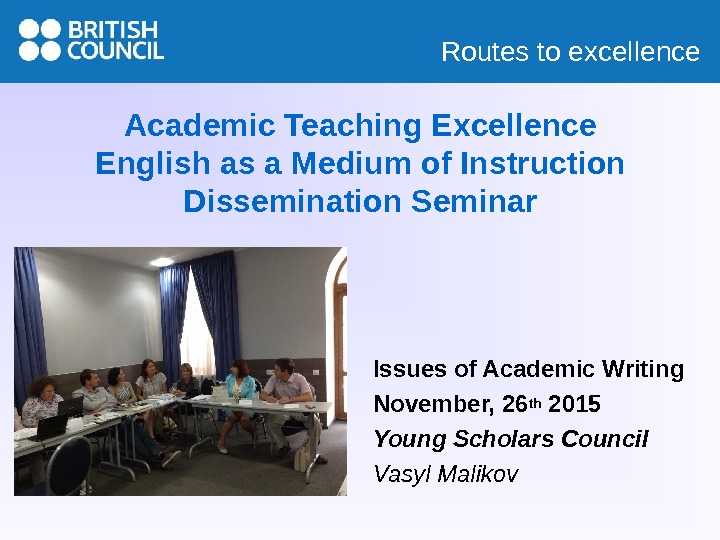
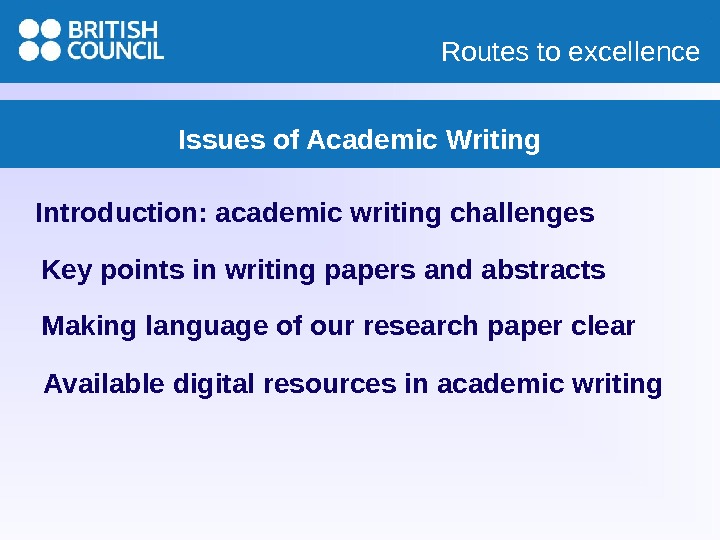

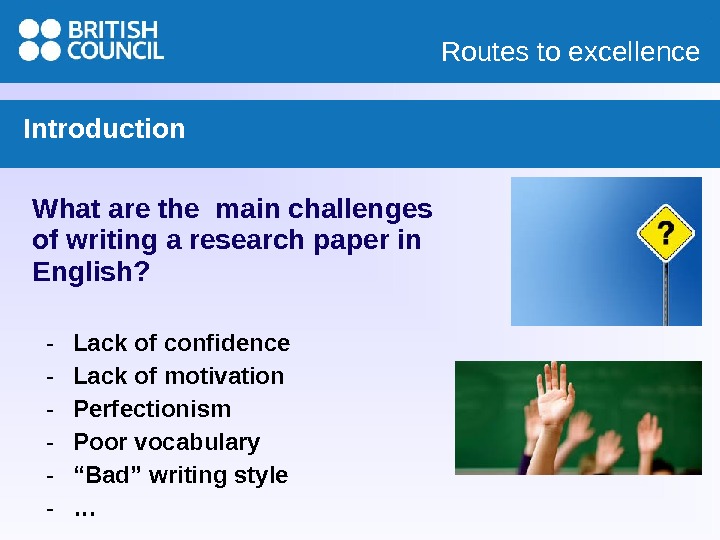
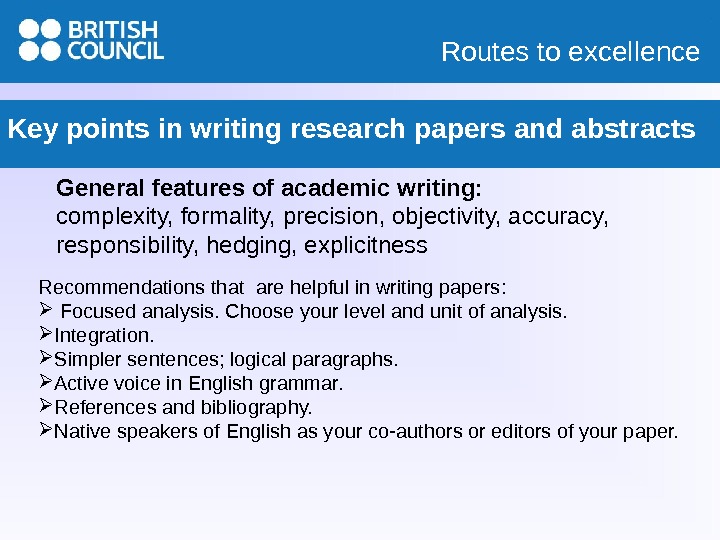

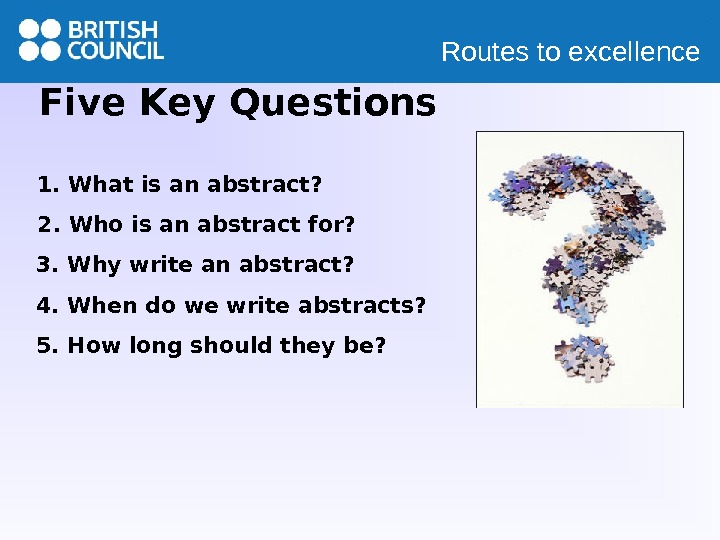
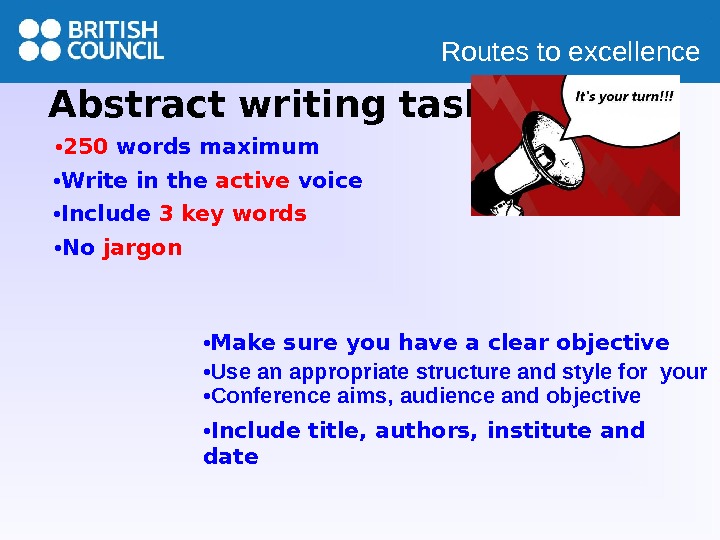
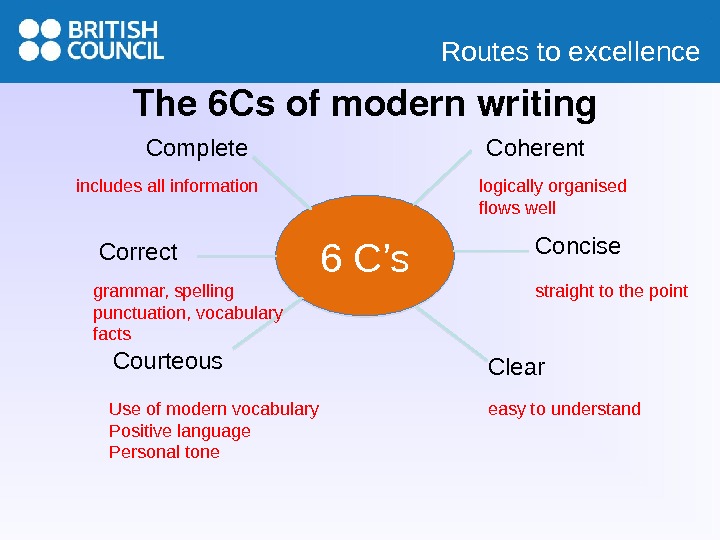
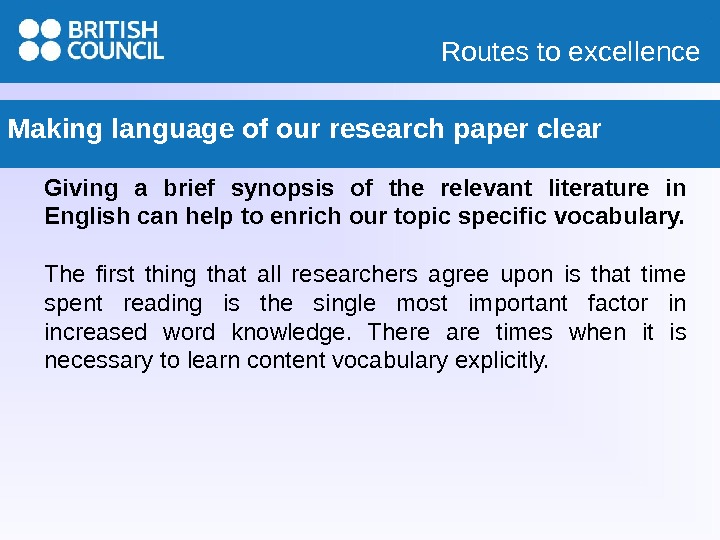

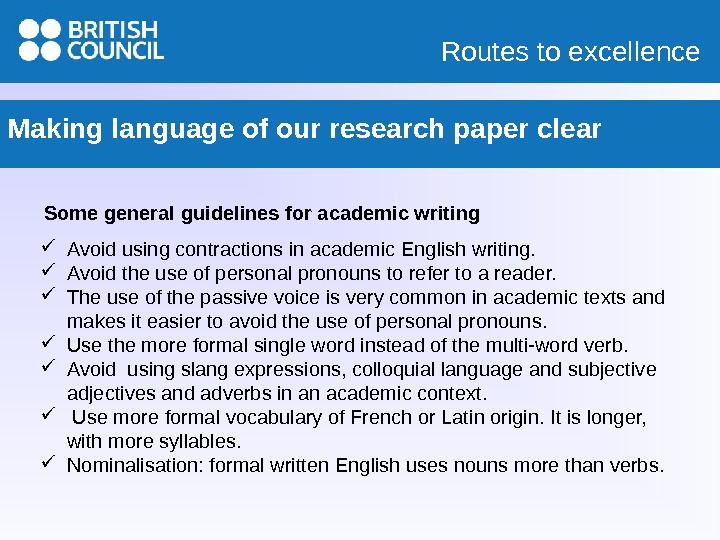
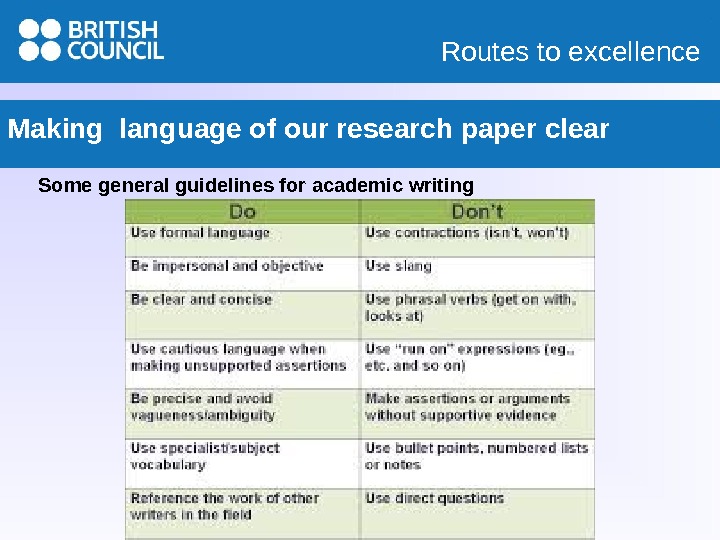
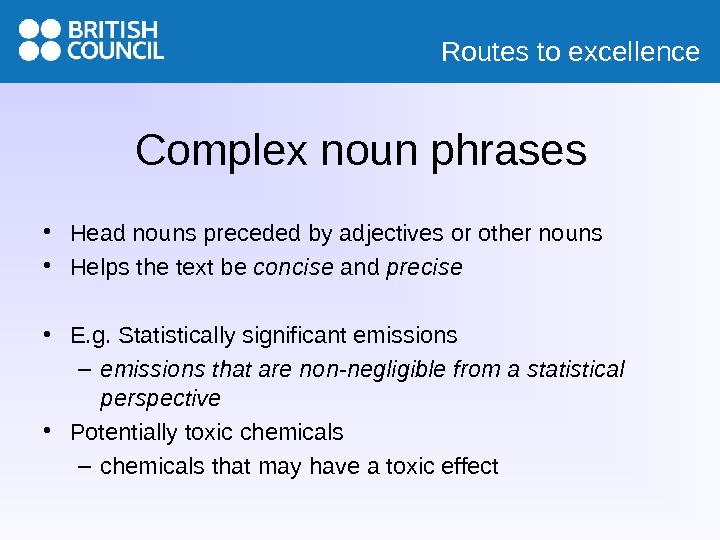
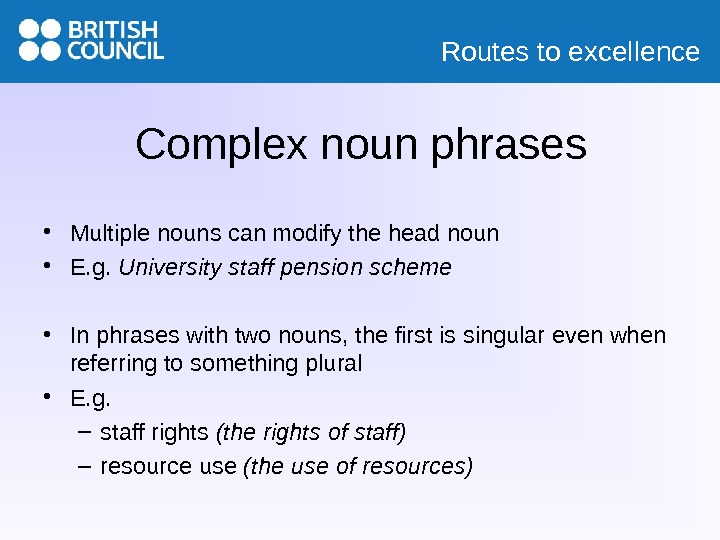
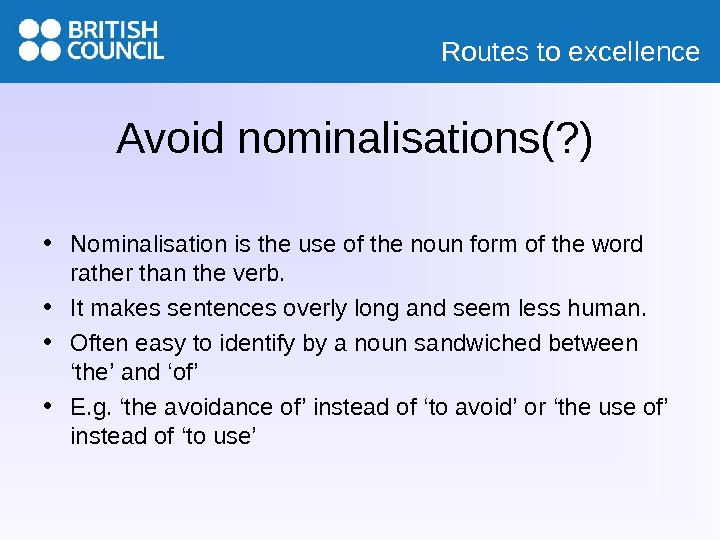


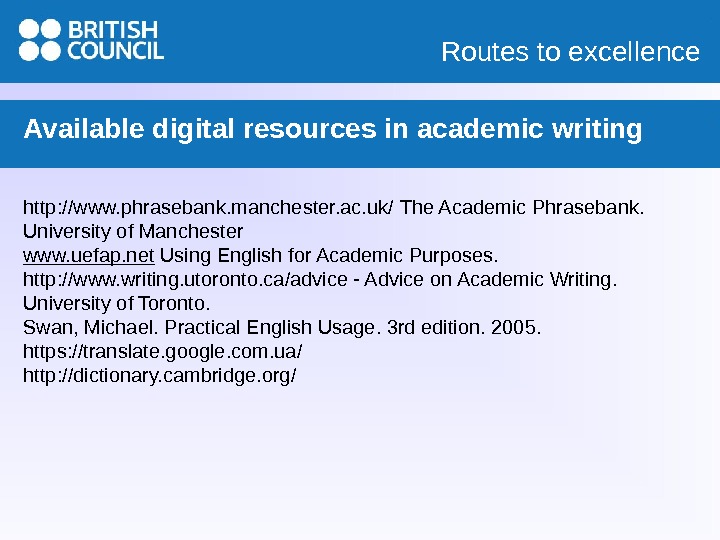

issues_of_academic_writing.ppt
- Размер: 848.5 Кб
- Количество слайдов: 20
Описание презентации Routes to excellence Academic Teaching Excellence English as по слайдам
 Routes to excellence Academic Teaching Excellence English as a Medium of Instruction Dissemination Seminar Issues of Academic Writing November, 26 th 2015 Young Scholars Council Vasyl Malikov
Routes to excellence Academic Teaching Excellence English as a Medium of Instruction Dissemination Seminar Issues of Academic Writing November, 26 th 2015 Young Scholars Council Vasyl Malikov
 Routes to excellence Issues of Academic Writing Introduction: academic writing challenges Key points in writing papers and abstracts Making language of our research paper clear Available digital resources in academic writing
Routes to excellence Issues of Academic Writing Introduction: academic writing challenges Key points in writing papers and abstracts Making language of our research paper clear Available digital resources in academic writing
 Routes to excellence Introduction What are our expectations and aims of writing a research paper in English?
Routes to excellence Introduction What are our expectations and aims of writing a research paper in English?
 Routes to excellence Introduction What are the main challenges of writing a research paper in English? — Lack of confidence — Lack of motivation — Perfectionism — Poor vocabulary — “ Bad” writing style — …
Routes to excellence Introduction What are the main challenges of writing a research paper in English? — Lack of confidence — Lack of motivation — Perfectionism — Poor vocabulary — “ Bad” writing style — …
 Routes to excellence Key points in writing research papers and abstracts General f eatures of academic writing: complexity, formality, precision, objectivity, accuracy, responsibility, hedging, explicitness R ecommendations that are helpful in writing papers : Focused analysis. Choose your level and unit of analysis. Integration. Simpler sentences; logical paragraphs. Active voice in English grammar. References and bibliography. Native speakers of English as your co-authors or editors of your paper.
Routes to excellence Key points in writing research papers and abstracts General f eatures of academic writing: complexity, formality, precision, objectivity, accuracy, responsibility, hedging, explicitness R ecommendations that are helpful in writing papers : Focused analysis. Choose your level and unit of analysis. Integration. Simpler sentences; logical paragraphs. Active voice in English grammar. References and bibliography. Native speakers of English as your co-authors or editors of your paper.
 Routes to excellence Key points in writing research papers and abstracts In order to fulfil these recommendations we need to take practical steps and solve several tasks: Introduce a work Give a brief synopsis of literature, bibliography Describe our methods Report and discuss results Write conclusions Organize a list of references. Write an abstract (see the hand-out).
Routes to excellence Key points in writing research papers and abstracts In order to fulfil these recommendations we need to take practical steps and solve several tasks: Introduce a work Give a brief synopsis of literature, bibliography Describe our methods Report and discuss results Write conclusions Organize a list of references. Write an abstract (see the hand-out).
 Routes to excellence 1. What is an abstract? 2. Who is an abstract for? 3. Why write an abstract? 4. When do we write abstracts? 5. How long should they be? Five Key Questions
Routes to excellence 1. What is an abstract? 2. Who is an abstract for? 3. Why write an abstract? 4. When do we write abstracts? 5. How long should they be? Five Key Questions
 Routes to excellence Abstract writing task • 250 words maximum • Write in the active voice • Include 3 key words • No jargon • Make sure you have a clear objective • Use an appropriate structure and style for your • Conference aims, audience and objective • Include title, authors, institute and date
Routes to excellence Abstract writing task • 250 words maximum • Write in the active voice • Include 3 key words • No jargon • Make sure you have a clear objective • Use an appropriate structure and style for your • Conference aims, audience and objective • Include title, authors, institute and date
 Routes to excellence 6 C ’s Coherent Concise Clear. Courteous. Correct Complete logically organised flows well straight to the point easy to understand. Use of modern vocabulary Positive language Personal tonegrammar, spelling punctuation, vocabulary factsincludes all information The 6 Csofmodernwriting
Routes to excellence 6 C ’s Coherent Concise Clear. Courteous. Correct Complete logically organised flows well straight to the point easy to understand. Use of modern vocabulary Positive language Personal tonegrammar, spelling punctuation, vocabulary factsincludes all information The 6 Csofmodernwriting
 Routes to excellence Making language of our research paper clear Giving a brief synopsis of the relevant literature in English can help to enrich our topic specific vocabulary. The first thing that all researchers agree upon is that time spent reading is the single most important factor in increased word knowledge. There are times when it is necessary to learn content vocabulary explicitly.
Routes to excellence Making language of our research paper clear Giving a brief synopsis of the relevant literature in English can help to enrich our topic specific vocabulary. The first thing that all researchers agree upon is that time spent reading is the single most important factor in increased word knowledge. There are times when it is necessary to learn content vocabulary explicitly.
 Routes to excellence Making the language of our research paper clear Signposting language: starting, ending, linking parts of text The aim of this study is to … The main questions addressed in this paper are … Finally, … In conclusion, … Listing: First(ly), … Second(ly), … Finally, … Adding: In addition, … Furthermore, … Showing contrast: However, … Nevertheless, … On the other hand, … Giving a reason: For this reason, … because of… due to… Indicating result or consequence: Therefore, … Thus, … As a result, … Consequently, … Giving examples: For example, … For instance, … To exemplify, …
Routes to excellence Making the language of our research paper clear Signposting language: starting, ending, linking parts of text The aim of this study is to … The main questions addressed in this paper are … Finally, … In conclusion, … Listing: First(ly), … Second(ly), … Finally, … Adding: In addition, … Furthermore, … Showing contrast: However, … Nevertheless, … On the other hand, … Giving a reason: For this reason, … because of… due to… Indicating result or consequence: Therefore, … Thus, … As a result, … Consequently, … Giving examples: For example, … For instance, … To exemplify, …
 Routes to excellence Making language of our research paper clear Some general guidelines for academic writing Avoid using contractions in academic English writing. Avoid the use of personal pronouns to refer to a reader. The use of the passive voice is very common in academic texts and makes it easier to avoid the use of personal pronouns. Use the more formal single word instead of the multi-word verb. Avoid using slang expressions, colloquial language and subjective adjectives and adverbs in an academic context. Use more formal vocabulary of French or Latin origin. It is longer, with more syllables. Nominalisation: formal written English uses nouns more than verbs.
Routes to excellence Making language of our research paper clear Some general guidelines for academic writing Avoid using contractions in academic English writing. Avoid the use of personal pronouns to refer to a reader. The use of the passive voice is very common in academic texts and makes it easier to avoid the use of personal pronouns. Use the more formal single word instead of the multi-word verb. Avoid using slang expressions, colloquial language and subjective adjectives and adverbs in an academic context. Use more formal vocabulary of French or Latin origin. It is longer, with more syllables. Nominalisation: formal written English uses nouns more than verbs.
 Routes to excellence Making language of our research paper clear Some general guidelines for academic writing
Routes to excellence Making language of our research paper clear Some general guidelines for academic writing
 Routes to excellence Complex noun phrases • Head nouns preceded by adjectives or other nouns • Helps the text be concise and precise • E. g. Statistically significant emissions – emissions that are non-negligible from a statistical perspective • Potentially toxic chemicals – chemicals that may have a toxic effect
Routes to excellence Complex noun phrases • Head nouns preceded by adjectives or other nouns • Helps the text be concise and precise • E. g. Statistically significant emissions – emissions that are non-negligible from a statistical perspective • Potentially toxic chemicals – chemicals that may have a toxic effect
 Routes to excellence Complex noun phrases • Multiple nouns can modify the head noun • E. g. University staff pension scheme • In phrases with two nouns, the first is singular even when referring to something plural • E. g. – staff rights (the rights of staff) – resource use (the use of resources)
Routes to excellence Complex noun phrases • Multiple nouns can modify the head noun • E. g. University staff pension scheme • In phrases with two nouns, the first is singular even when referring to something plural • E. g. – staff rights (the rights of staff) – resource use (the use of resources)
 Routes to excellence Avoid nominalisations(? ) • Nominalisation is the use of the noun form of the word rather than the verb. • It makes sentences overly long and seem less human. • Often easy to identify by a noun sandwiched between ‘ the ’ and ‘ of ’ • E. g. ‘ the avoidance of ’ instead of ‘ to avoid ’ or ‘ the use of ’ instead of ‘ to use ’
Routes to excellence Avoid nominalisations(? ) • Nominalisation is the use of the noun form of the word rather than the verb. • It makes sentences overly long and seem less human. • Often easy to identify by a noun sandwiched between ‘ the ’ and ‘ of ’ • E. g. ‘ the avoidance of ’ instead of ‘ to avoid ’ or ‘ the use of ’ instead of ‘ to use ’
 Routes to excellence Avoid nominalisations • The solution is to replace the noun with the verb E. g. • “ We ensured the engagement of students in the experiment with the use of lunchtime meetings. ” to • “ We used lunchtime meetings to engage students. ”
Routes to excellence Avoid nominalisations • The solution is to replace the noun with the verb E. g. • “ We ensured the engagement of students in the experiment with the use of lunchtime meetings. ” to • “ We used lunchtime meetings to engage students. ”
 Routes to excellence Shorten when possible • On account of the fact of • At the present time • In the majority of instances • On the part of • Remove altogether • Regular weekly meetings • Because • Now • Mostly • By • Remove • Weekly meetings
Routes to excellence Shorten when possible • On account of the fact of • At the present time • In the majority of instances • On the part of • Remove altogether • Regular weekly meetings • Because • Now • Mostly • By • Remove • Weekly meetings
 Routes to excellence Available digital resources in academic writing http: //www. phrasebank. manchester. ac. uk/ The Academic Phrasebank. University of Manchester www. uefap. net Using English for Academic Purposes. http: //www. writing. utoronto. ca/advice — Advice on Academic Writing. University of Toronto. Swan, Michael. Practical English Usage. 3 rd edition. 2005. https: //translate. google. com. ua/ http: //dictionary. cambridge. org/
Routes to excellence Available digital resources in academic writing http: //www. phrasebank. manchester. ac. uk/ The Academic Phrasebank. University of Manchester www. uefap. net Using English for Academic Purposes. http: //www. writing. utoronto. ca/advice — Advice on Academic Writing. University of Toronto. Swan, Michael. Practical English Usage. 3 rd edition. 2005. https: //translate. google. com. ua/ http: //dictionary. cambridge. org/
 Routes to excellence Thank you for attention, support and feedbacks!
Routes to excellence Thank you for attention, support and feedbacks!
